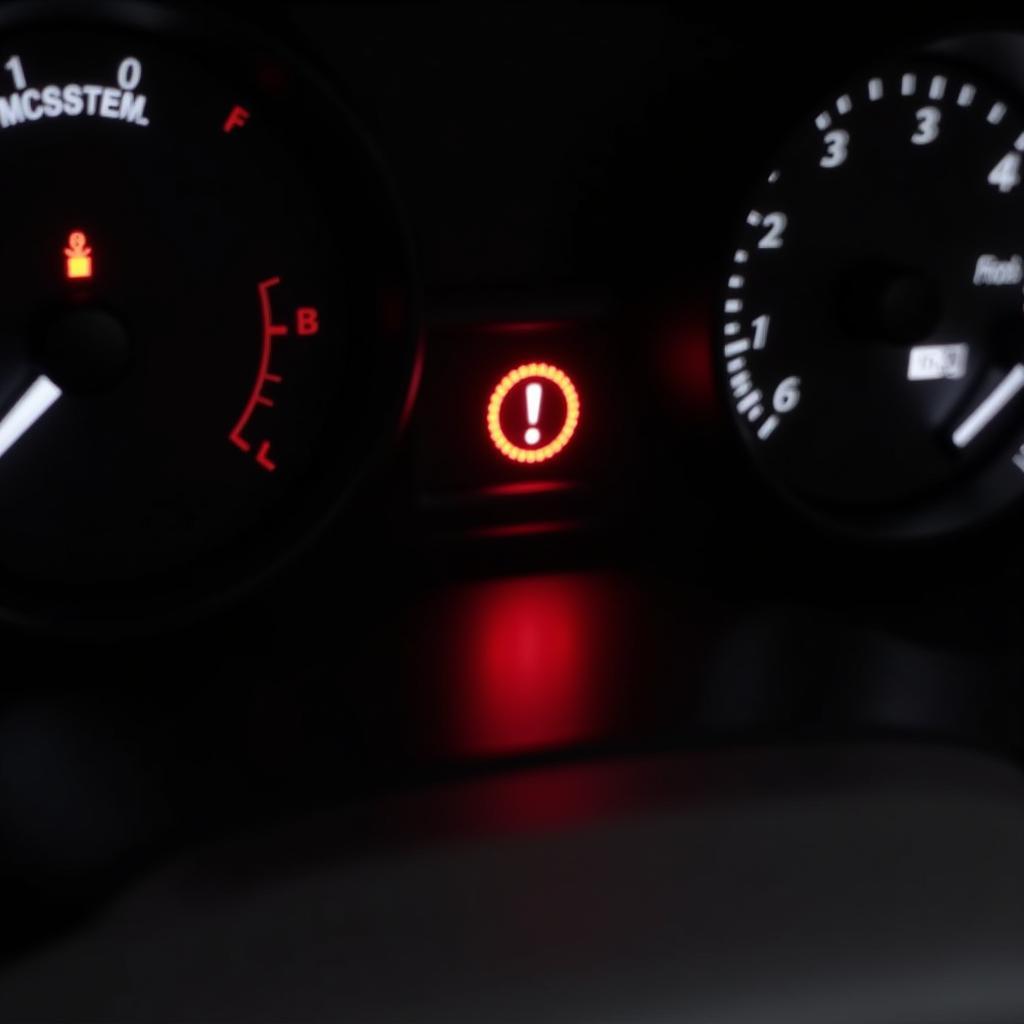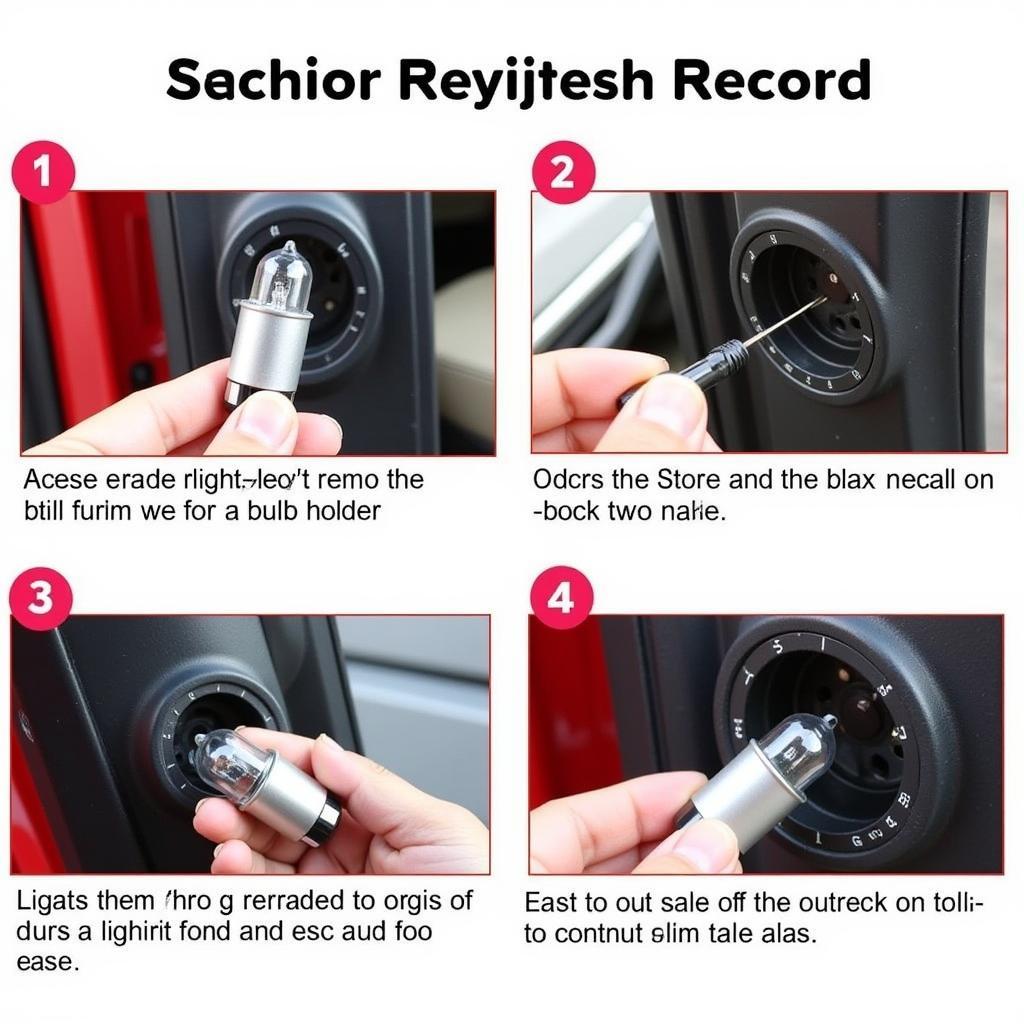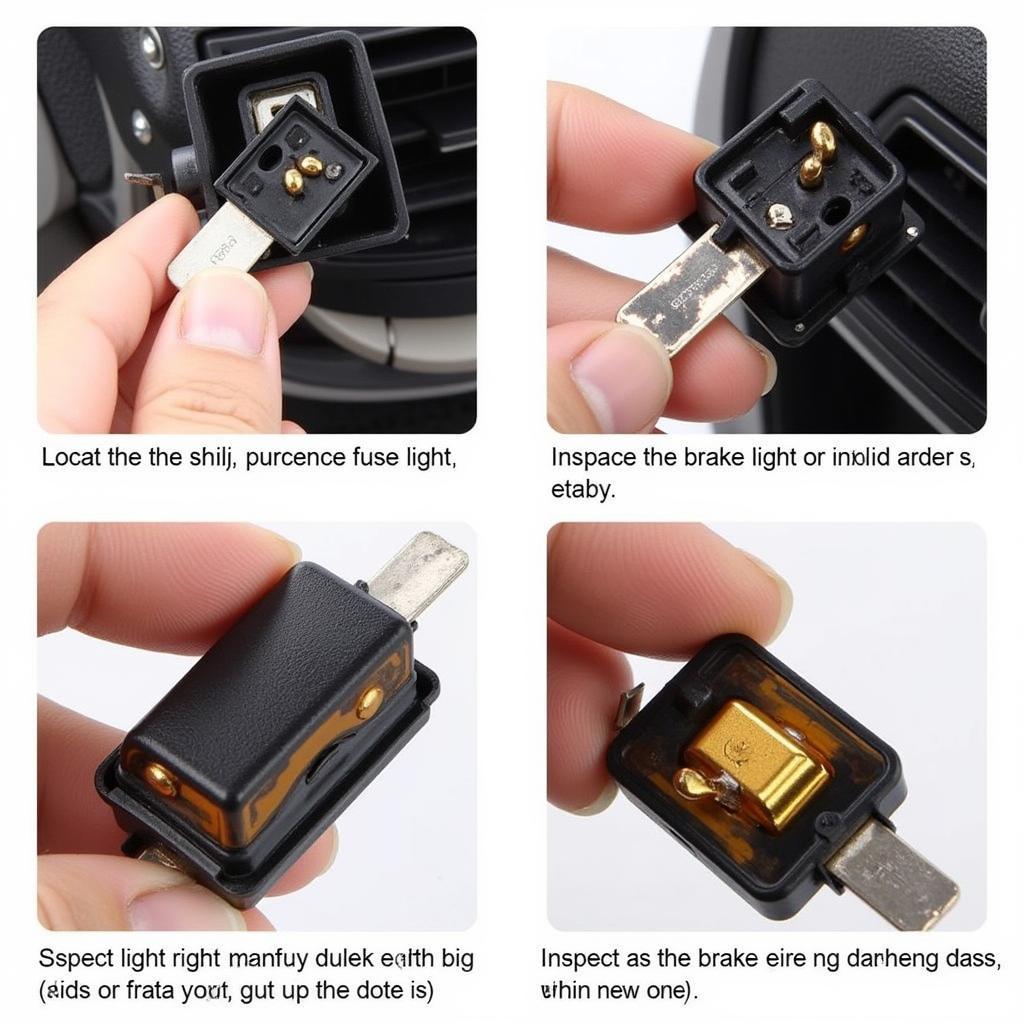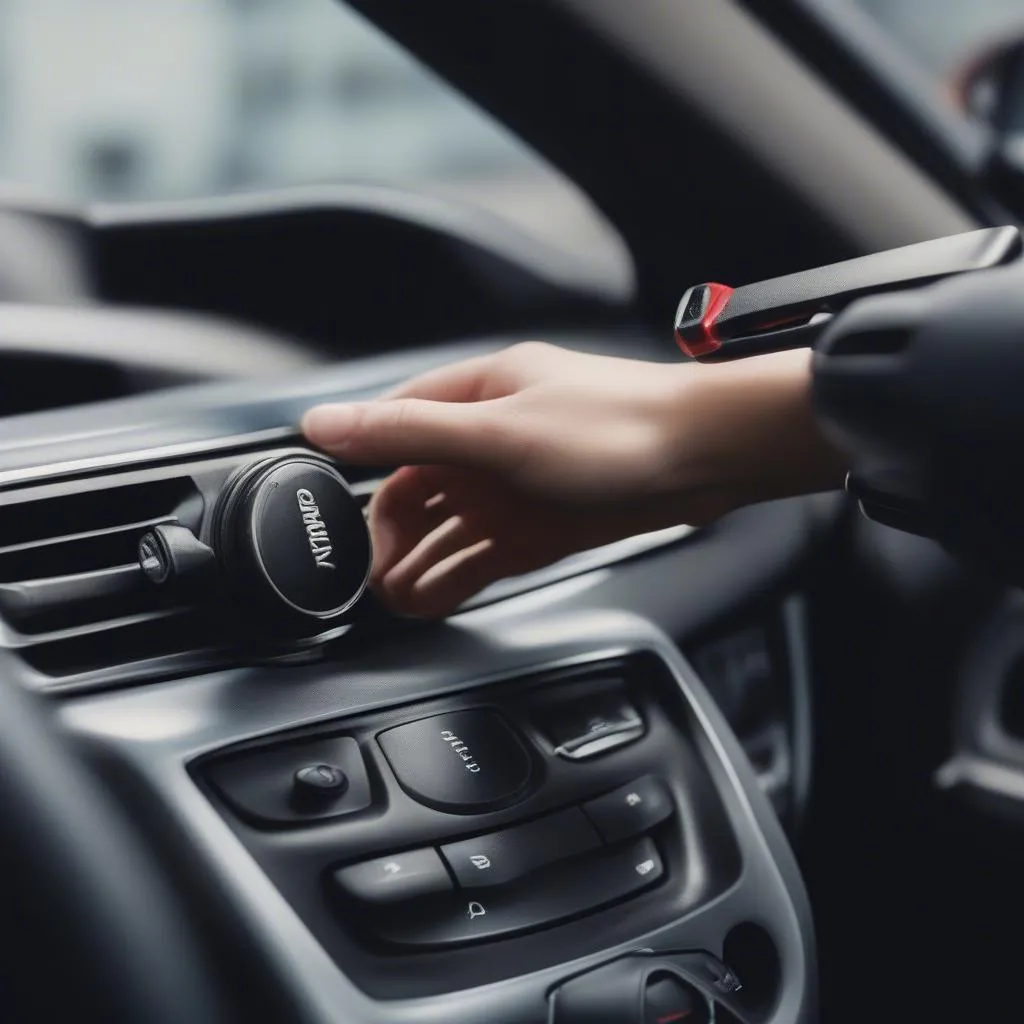A brake light warning on your Nissan Altima dashboard means one or more of your brake lights aren’t working. This is a serious safety issue, as it can make your car less visible to other drivers, especially at night.
 Nissan Altima dashboard with brake light warning light illuminated
Nissan Altima dashboard with brake light warning light illuminated
Common Causes of Brake Light Warnings in Nissan Altimas
Several factors can cause your Nissan Altima’s brake light warning to come on:
- Burnt-out bulb: This is the most common cause. Brake light bulbs have a limited lifespan and eventually burn out, just like any other light bulb.
- Blown fuse: A blown fuse in the brake light circuit will cut off power to the lights. This can happen due to a power surge or a short circuit.
- Faulty brake light switch: The brake light switch, located behind the brake pedal, activates the lights when you press the brake. If it fails, your lights won’t illuminate.
- Wiring problems: Damaged or corroded wiring in the brake light circuit can prevent the lights from receiving power.
- Faulty brake light socket: A damaged or corroded bulb socket can also prevent the brake light from working.
Troubleshooting a Brake Light Warning: A Step-by-Step Guide
Before you take your Altima to a mechanic, there are a few things you can check yourself:
- Inspect the brake lights: Have a friend press the brake pedal while you check if all three brake lights (two on the sides and one in the center) are working.
- Check the brake light bulbs: If a bulb is burnt out, replace it with a new one of the correct type.
 Replacing a burnt-out brake light bulb in a Nissan Altima
Replacing a burnt-out brake light bulb in a Nissan Altima - Check the brake light fuse: Locate the fuse box (usually under the dashboard or hood) and consult your owner’s manual to identify the brake light fuse. If the fuse is blown, replace it with a new one of the same amperage.
 Inspecting and replacing a blown brake light fuse in a Nissan Altima
Inspecting and replacing a blown brake light fuse in a Nissan Altima
“Always disconnect the negative battery terminal before replacing any fuses,” advises John Miller, Senior Automotive Electrician at Miller’s Auto Repair. “This prevents accidental short circuits and potential damage to the electrical system.”
When to Seek Professional Help
If you’ve checked the bulbs, fuses, and connections, and your brake lights still aren’t working, it’s best to take your Nissan Altima to a qualified mechanic. Issues with the brake light switch or wiring require specialized tools and knowledge to diagnose and repair.
Preventing Future Brake Light Issues
Here are some preventative measures to minimize the chances of brake light warnings in the future:
- Regularly inspect your brake lights: Make it a habit to check all your lights, including brake lights, at least once a month.
- Replace bulbs proactively: Consider replacing your brake light bulbs every two years or 25,000 miles, even if they haven’t burnt out yet.
- Address moisture in light housings: If you notice condensation inside your taillight housings, have it checked and repaired. Moisture can damage bulbs and electrical components.
Addressing a brake light warning promptly ensures your safety and the safety of others on the road. Regular maintenance and prompt repairs can prevent this issue from recurring and keep your Nissan Altima in optimal condition.

